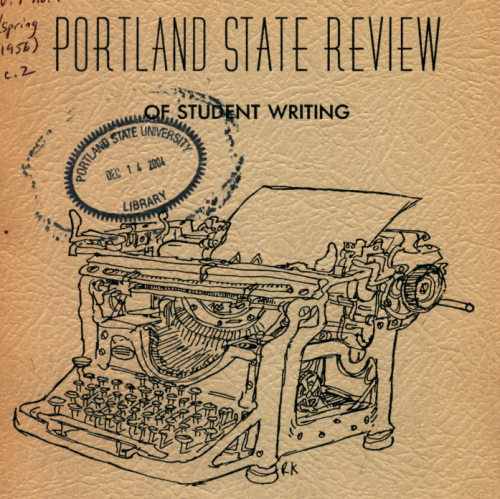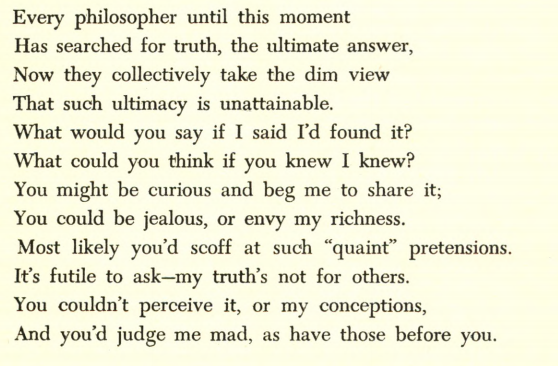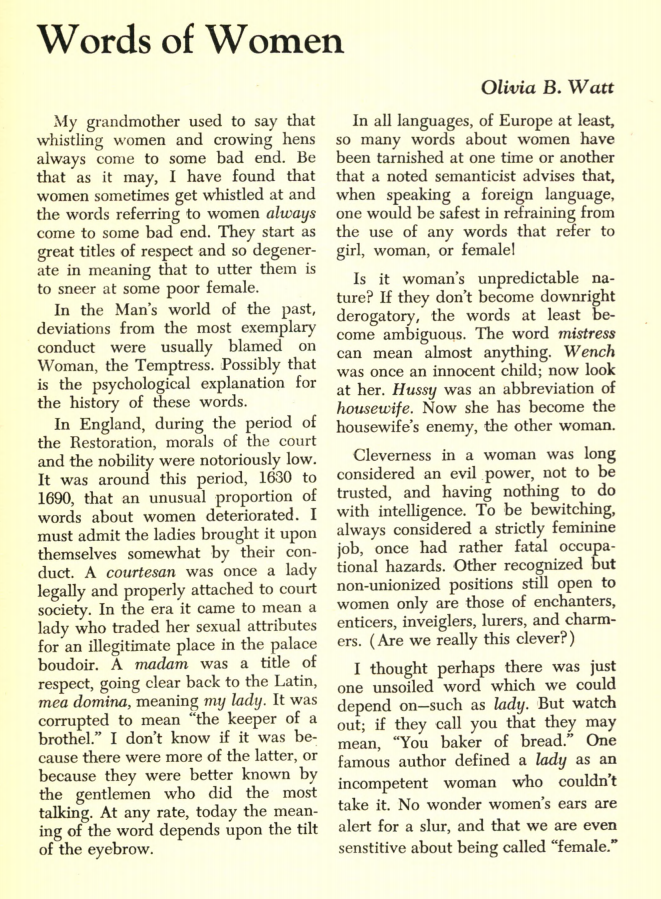It’s fitting that the first word of Portland Review’s inaugural edition is birth.
Sixty-two years ago (none of our current editorial staff were even within twenty years of being born) students of the then Portland State College created a new magazine, one that they hoped would, “contribute to man’s greater awareness of himself in relation to the life which he is experiencing.” (This wording is, we understand, a product of its time, and we strive with every issue to move away from patriarchal language.) That’s a lofty goal, especially for students who, at the same time, were worried about exams, relationships, and furiously writing their own stories.
The editors knew what they were doing was important, that the promotion of art (in their words) “brings meaning” to the lives of others. The country was in tumult, ensnared in the Cold War, between armed conflicts that would bifurcate our sensibilities, and aflame with social revolution by both women and minorities. People sought out understanding, and the student editors knew that words on their own could not do this. “A verb cannot alone give meaning to life,” then Editor Dick Sanders writes. By this he means that writing must be earnest, it must contribute to the “greater awareness.”
The first issue of Portland Review (then called the Portland State Review) is populated largely with content we may expect to see today: prose and poetry about relationships, humanity, grief, and nostalgia. There are more than a few examples of work directly relating to collegiate life (at this time the journal only accepted submissions from current Portland State students). But mostly there is a combination of bafflement and rage, of not knowing, of confrontation.
The writers are confronting both the issues they face daily and themselves, as well as what it means to be someone who wants to understand. Martha Ryherd, in an untitled poem, questions the very idea of knowing.
And, in possibly the most progressive piece in the entire issue, Olivia B. Watt rails against the societal labels placed on women.
How well this piece could sing alongside many from our most recent issue. How well it could sing today.
The more things change, the more they stay the same. A platitude, yes, but applicable here. Though the format, readership, status, and contributors to Portland Review have changed, the goals remain constant: to create a venue for work that, in concert, can resonate within the reader like a bell struck.
There is a relevant passage at the end of the 2018 editorial letter. I will quote it in its entirety:
“Writing like this, we feel, is the antidote to every poison peddled to us. We are more dependent than ever on our ability to resist, to understand, and to foster the safety to support one another. It is our hope that in this issue you will find a small refuge.”
Compare that with a passage from the very first issue’s editorial letter:
“We work eight hours a day, then spend our evening trying to ease the tension enough to be able to work another day. Our work is only to gain the money to afford the relaxation we need to survive the succeeding days of work. And so the years proceed, years without meaning. We yearn for greater things, but somehow our yearning becomes lost in the complexities of our physical desires. To this world, which sometimes seems meaningless, the artist brings meaning.”
Portland Review is, in this way, an inheritance of idea, of feeling. We are a lineage of writers and readers attempting meaning.
Perhaps in sixty-two more years we will have found what it means to understand, but for now we continue searching.
—
Ben Kessler is Portland Review‘s co-editor-in-chief. His work appears in Pom Pom Lit Mag, Superstition Review, National Geographic, and Hobart. He lives and writes in Portland, Oregon.



